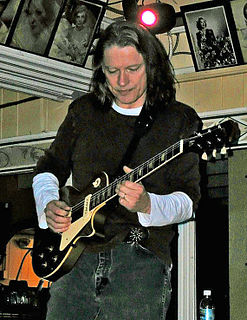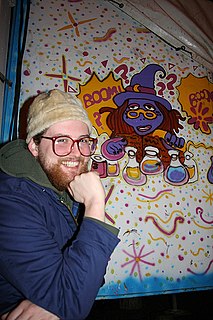A Quote by Marc Martel
You're a musician and you live and die by people responding to your music. It's a business just like anything else and if people don't like your music, that's kind of your problem.
Related Quotes
The most important thing is that you make sure you follow the music, which is a musician's way of saying follow your heart. The two things are intertwined. You know, when you even mention the phrase "music business," the older you get, the sourer it sounds. It's a terrible business, you know. Music and business have nothing to do with each other; there's no correlation, so it's always a rub. I would encourage people, don't be swayed by the music business. If you're truly, in your heart, a musician, stay one, and let the business find you.
Rock & roll is so great, people should start dying for it. You don't understand. The music gave you back your beat so you could dream...The people just have to die for the music. People are dying for everything else, so why not for music? Die for it. Isn't it pretty? Wouldn't you die for something pretty?
I often envy a filmmaker or a playwright or an author where people are like, "Yeah, I sat down every night and read your book and it was beautiful." Or, "Yeah, I went to the movies and all I did was watch the movie because that's all you could do at the movies." Where with music, it's like, "Ugh, I love your music. I listen to it while I'm jogging thinking about how I hate my body." But it is also the privilege of being a musician is you can have your music in this documented form and play it live and that's, I think, what draws me to it the most.
When music turned into being like candy - what people don't realize is, yes it's candy, but candy has long-term effects if you're just eatin' it as your main meal. And that's a problem, 'cause if you got music that keeps comin' at you, that keeps coming like a piranha, coming and rippin' at your soul, it's like yeah, I'm takin' this in, but there's not much of me left. Then you'll be lookin' for something outside of music to satisfy you, or take you away.
When you get in the middle of a career and you're successful, people come and offer you things. My biggest fear was that if you try to do something else and you're trying to build your music career, and then you say, "I'm going to go do a movie," and you're terrible, you can really hurt your music career because as a musician, the goal is to be cool. You're playing the guitar and you're in front of all these people and your vibe is to be as cool as you can possibly be.
He shook his head. "Some people think that they like music, but they have no idea what it's really about. They're kindding themselves. Then there are people who feel strongly about music, but just aren't listening to the right stuff. They're misguided. And then there are people like me."
"People like you," I said. "What kind of people are those?"
"The kind who live for music and are constantly seeking it out, anywhere they can. Who can't imagine a life without it. They're enlightened."
I wouldn't say that I'm a consummate live artist. Album work is kind of just like quilt weaving or something. But live music is just like a method of emptying out the mind through volume. Volume as a form that allows you to do different things. And that doesn't really translate to recorded music, like how do you listen to that, on Spotify or in your car? It's not the same kind of effect. I would say that the loudness is a huge part of what I do live.
There is a terrible thing that's been happening probably for the last 20 years or so and it's called the music business. And music isn't really business; it's work and you got to pay and you've got to buy your guitar or go into the studio. So there is a business side but when people say, "I'm going into the music business," it's not. It's about expression. It's about creativity. You don't join music, in my mind, to make money. You join it because it's in you; it's in your blood stream.



































